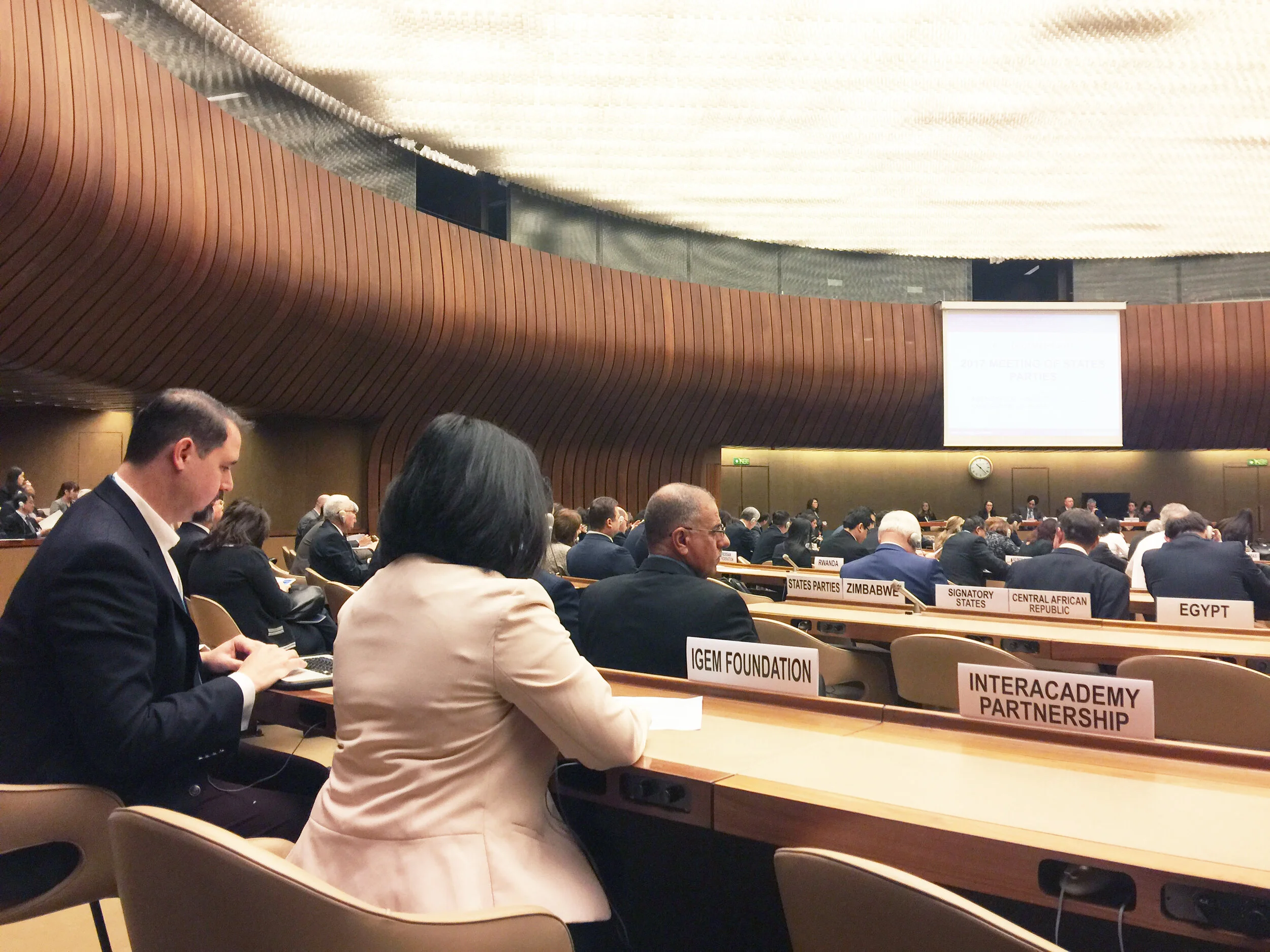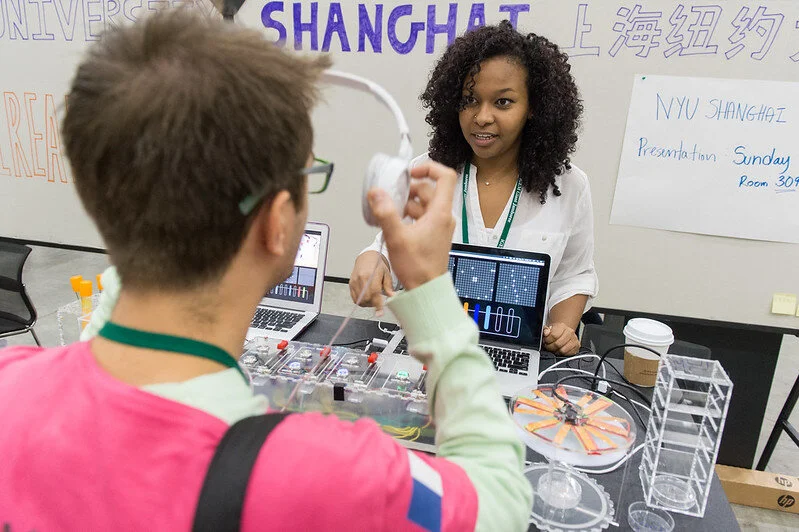iGEM contributions to international policy processes
by Piers Millett
From the very early days, iGEM has focused on how synthetic biology affects the world, and how the world affects synthetic biology. Good bioengineering is safe, secure, and responsible synthetic biology. This idea is captured in our values of integrity, good sportsmanship, respect, honesty, celebration, cooperation, effort, and excellence.
All our teams think about how to solve real world problems while managing risks to themselves, their colleagues, communities, and the environment. iGEM supports the teams by providing information, tools and other resources through online hubs dedicated to Human Practices and Safety and Security. Our work draws upon specialist committees, made of up of a wide range of field leaders from all around the world.
FBI representatives interact with iGEM students at the 2017 Giant Jamboree
Over the years, our community has learned a great deal about how we can use bioengineering to address global challenges, as well as possible risks (and how to manage them). We have had good ideas; we have been challenged; and we have spotted opportunities to do things better. We have learned a great deal about what works and what doesn’t.
In the spirit of iGEM’s give and get philosophy, we have shared our experiences with those whose jobs it is to set the rules that keep us all safe. Through our Delegate Program, iGEM team members, After iGEMers, iGEM committee members, and iGEM HQ have all contributed to international policy processes, including the UN Convention on Biological Diversity, the Biological Weapons Convention, and the Australia Group.
In 2016, and again in 2018, iGEM delegates from Brazil, Canada, Costa Rica, Germany, India, Mexico, Panama, and Slovenia, (as well as iGEM HQ) travelled to Cancun, Mexico and Sharm El-Sheikh, Egypt to participate in the Conference of States Parties of the international treaty that strive for the safe and fair use of genetic resources. iGEM delegates took part in the formal meeting, participated in side events hosted by other organizations, and shared their insights, views and opinions with diplomats and experts from their countries and neighbours. Throughout meetings, iGEM delegates observed and learned about the process of policy-making, and initiated conversations with other participants to better understand their perceptions of synthetic biology.
After iGEM Delegates at the 2018 Convention on Biological Diversity in Sharm El-Sheik
In 2014, and again in 2017, iGEM delegates from Canada, Germany, Taiwan, and the United States travelled to Geneva, Switzerland to take part in the annual meeting of the international treaty that bans biological weapons. iGEM delegates learned how international governance works in practice, discussed their ideas with experts and policy makers from all around the world, explored about how scientists and engineers can have an effect on international policy, helped others understand the implications of developments in science and engineering, and shared safety and security insights from their experiences in iGEM.
In 2018, as iGEM’s Vice President for Safety and Security I was invited to address the technical experts of the international export control regime (that controls agents and technology that could be used to make bioweapons). I learned first-hand how these experts help update these rules to keep pace with advances in science and engineering. I provided an overview of how our community follows their rules and avoids becoming part of this important problem. I shared some specific insights into how they could improve their rules to make them more relevant to synthetic biology and for iGEM in particular.
We are privileged to have been able to feed directly into these international policy processes. By sharing our experiences and insights we hope to help to improve how they work, diversify the voices they hear from, and keep up with technical developments. Our next challenge is to brief the World Health Assembly and share insights into how synthetic biology is helping communities around the world address their needs in diagnostics and therapeutics. We have struggled to find the right way to take part but will continue look and when we do, we hope you will come and help us tell our stories!









